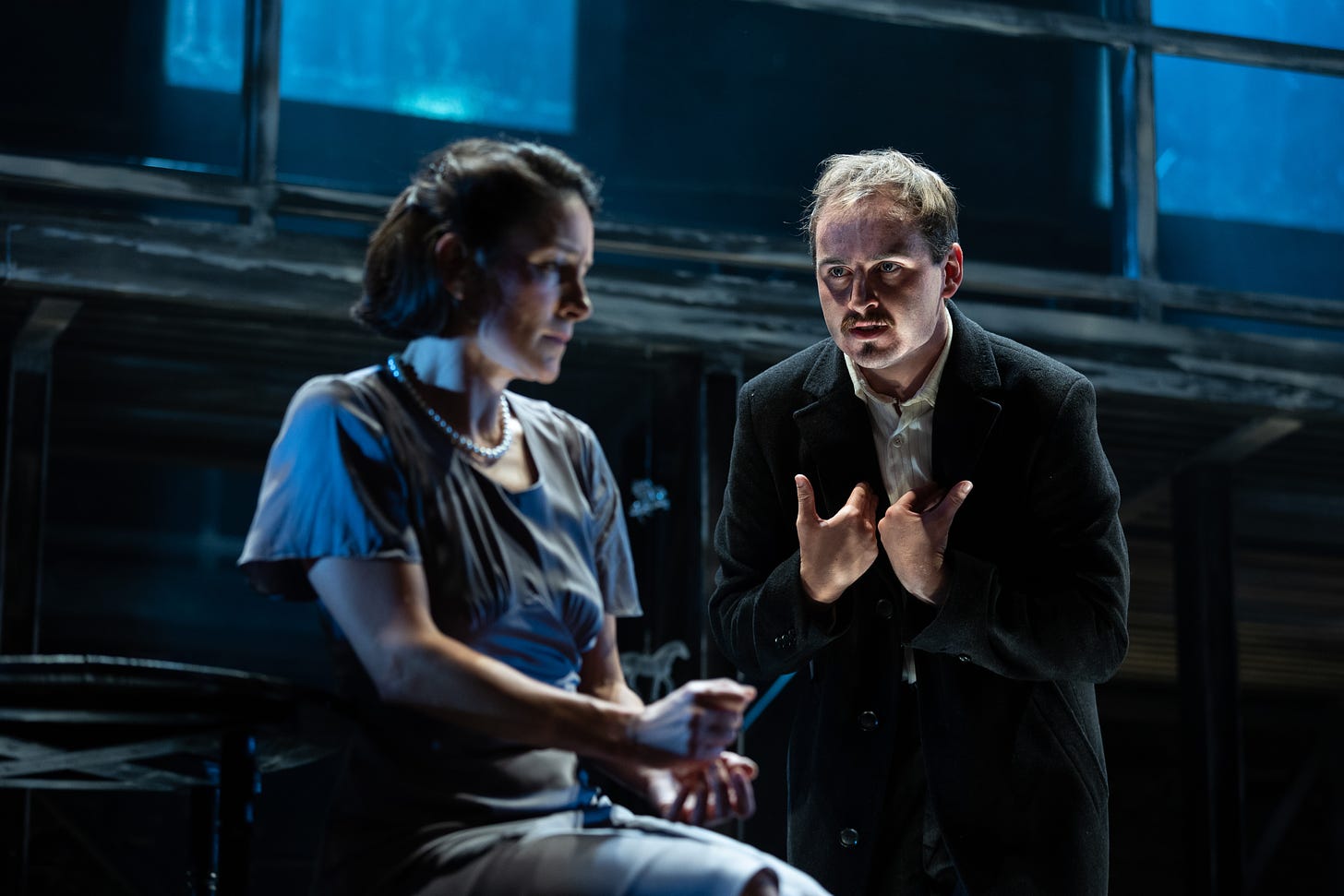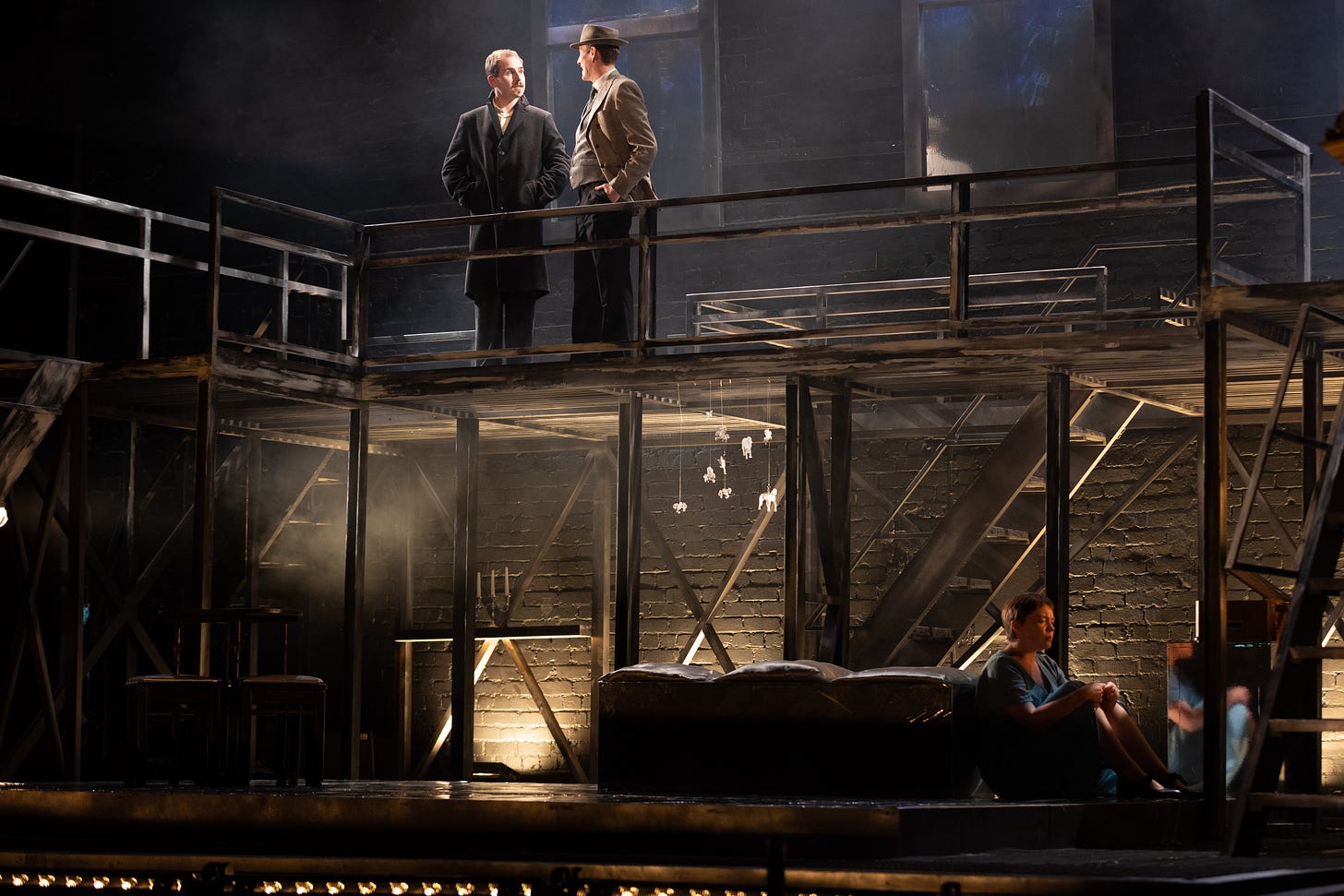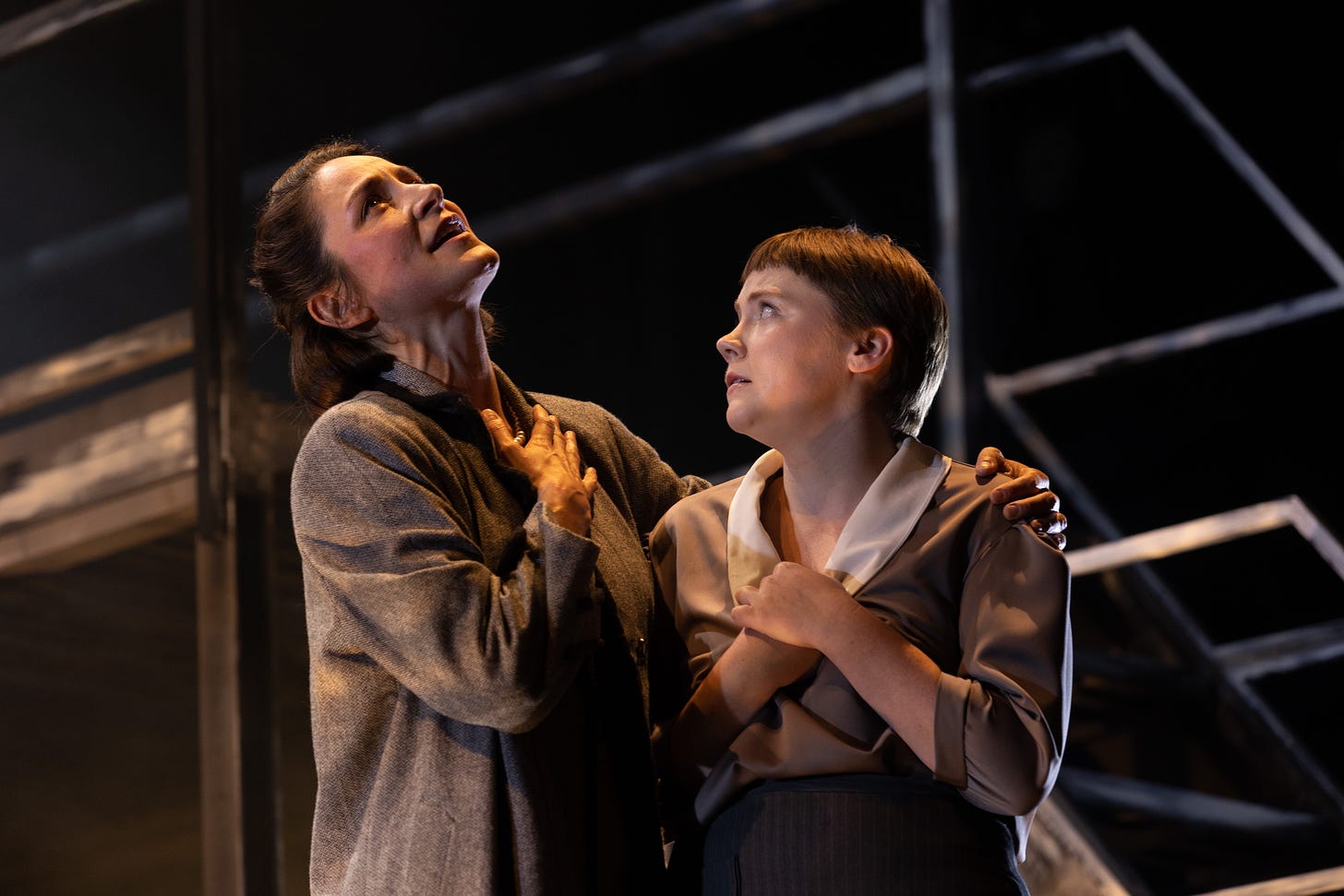Theatre review: The Glass Menagerie at The Everyman
Pádraig O’Connor reviews Tennessee Williams' breakout play about an unhappy family and their worldly ambitions directed by Emma Jordan now showing at The Everyman until August 26.

As the old saying goes, a mother is only as happy as her unhappiest child, but well, some mothers are only ever happy when forcing their children to live the life they think they ought to be leading.
In Emma Jordan’s new production of Tennessee Williams’ The Glass Menagerie, we meet such a mother. Amanda Wingfield is a traditional, overbearing, fading beauty, whose husband has long since left her, so, having successfully reared their two children on her own, she now spends her days trying desperately to find a husband for her crippled daughter, while admonishing her feckless son for his lack of ambition and spending all his evenings out gallivanting, instead of pursuing a more useful activity such as studying.
Although an accepted, timeless classic, The Glass Menagerie is still an interesting choice for the Everyman’s summer show, given that The Gate Theatre in Dublin staged a production of the very same play, just four years ago. Doubly interesting, given that about two of those years were lost, with almost no productions staged in front of live audiences.
So, why do it again? And so soon? And in a small country, with such a small theatre scene? Has Emma Jordan, the director, like Tom, Amanda’s suffocated son and the narrator in the play, some tricks up her sleeve?
This was an important, breakout piece for Tennessee Williams, where he sought to portray his own fractured family history and in doing so, examine the role of the individual in mass society, set against the backdrop of post-World War I and The Great Depression in the city of St. Louis, Missouri.
This grim period of time however, isn’t accurately relayed through the set design by Ciaran Bagnall, which for all intents and purposes, is no more than an elevated platform with a few stairs running off of it, thus always giving the characters space to run to, when they wish to escape the claustrophobic presence of their mother.
Further to this, is the continued blight of postmodern furniture. A layer of plastic is clearly visible over the wooden box used as a bed and sofa, while a small table and a few stools represent the extent of the kitchen area, none of which really does anything to suggest the bleak conditions the Wingfields and millions of other families were living through. Instead, it gives the impression of a cheaply decked out modern apartment and a possible owner with a penchant for IKEA.
This aside, there was much to admire in the on stage action, with some strong performances. Darragh Feehely plays the would-be poet Tom and his scenes duking it out with his mother Amanda, played by Natalie Radmall-Quirke, over his lifestyle choices, are brimming with temper and frustration. Feehely also shows incredible attentiveness when he is not involved in a scene, hanging around stairs or leaning over bannisters as the curious onlooker and guardian of memory, showing a delightful range of subtle responses based on what the other characters are experiencing. No easy task over some very lengthy scenes, even more so, when the audience isn't supposed to be focused on him.
Laura (Chloe O’ Reilly) is the fragile daughter, who is encouraged to overcome her disability by being charming; this is in stark contrast to the modern world where having an impediment is seen as a basis to form one’s identity around. Could this notion, to take just one example, have been explored in an alternative manner to give the production a fresh twist?
Regardless, O’Reilly is certainly convincing as the tortured, stay-at-home recluse, wincing and contorting her way to the eventual visitation by the long awaited gentleman caller, the ambitious Jim O’Connor played by Lorcán Strain, who gives us a charming, but slightly gormless potential suitor for Amanda’s daughter.
Their climatic scene together is very tender indeed, and makes great use of silence, which is when this production is at its most powerful and not accompanied by the, at times, melodramatic music. The costumes, made by Valentina Gambardella, though simple, are effective, accurately reflecting each character’s position and what version of themselves they want to project to other people.
Still, by the end of the two-and-a-half hours, some questions lingered on. Was this just another classic for the sake of a classic? Why did the audience not admire Amanda more instead of just finding her a bit ridiculous? Should more work have been done on characterisation and accents, as one character kept losing control of their Southern twang entirely?
As a portrayal of the disintegrating ideal of the family unit, this production is neither entirely faithful to the original, nor does it really give us all that is very much new to tackle. It is entirely possible to luxuriate in the great writing and fine performances and enjoy the show. For some that will be plenty, for others, it won’t be enough. It's only a matter really, of opinion and taste.
The Glass Menagerie runs until August 26 (excluding Sunday and Monday). There will be a post-show talk Tuesday, 15 August, an audio described performance and touch tour on Thursday, 24 August and an ISL interpreted performance Friday, 25 August. Tickets from €19 available from The Everyman.
Pádraig O’Connor is a playwright living in Cork city. You can read more of his reviews for Tripe + Drisheen here.





